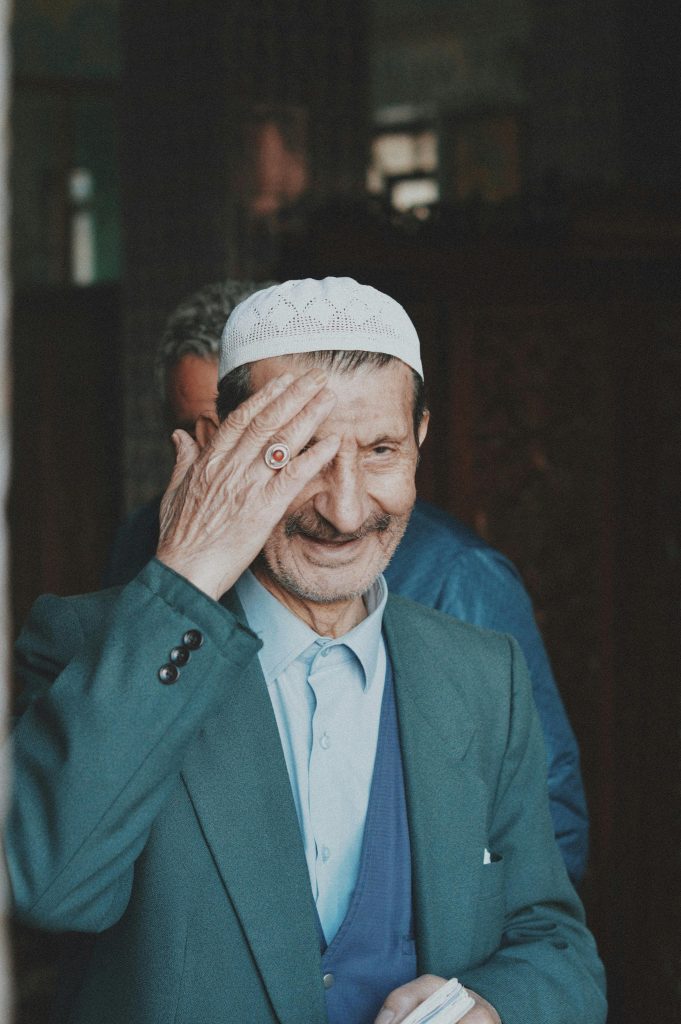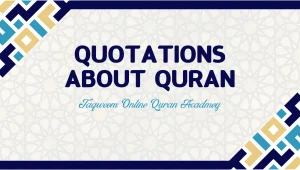Table of Contents
ToggleThe Power of Greeting First in Islam
Imagine stepping into a room full of strangers, unsure and perhaps a little lonely. Then a kind voice greets you: “Assalamu Alaikum.” Instantly, a wave of calm washes over you. This simple phrase – the traditional Arabic greeting meaning “Peace be upon you” – feels like a warm hug from the heart of the community.
It’s more than mere politeness; it’s a beautiful wish for peace, mercy, and blessings. In Islam, every greeting carries deep meaning and the power to connect souls.
Have you ever felt a small act of kindness melt away anxiety? In one moment, a gentle word can turn a stranger into a friend. That’s the magic of saying Salam. This isn’t just a casual hello; it’s a prayer. It’s the Prophet Muhammad’s (peace be upon him) Sunnah – a sacred tradition he encouraged so that hearts could open and brothers and sisters could unite.
Ready to discover how a single word can light up a soul? Let’s begin this journey of peace together.
Meaning and Significance of Salam
In Arabic, “Salam” means peace, safety, and well-being. When Muslims say “As-Salamu Alaikum” to each other, they are literally saying “Peace be upon you.” This greeting comes from the same root as Islam (submission) and As-Salam (one of God’s 99 names, meaning the Source of Peace). It reminds us of Allah’s compassion and the peace we hope for in our community.
Adding “wa Rahmatullah wa Barakatuh” extends the wish: “and His mercy and blessings.” So the full phrase Assalamu Alaikum wa Rahmatullahi wa Barakatuh means “May peace, mercy, and blessings of God be upon you.” It’s like sending a little dua (prayer) through a hello. Even a simple response like “Wa Alaikum Assalam” (and upon you be peace) completes this beautiful exchange of goodwill.
The tradition goes back to Prophet Adam (peace be upon him), who greeted the angels with Salam and received an extra blessing in reply. Over generations, prophets and companions have continued this practice. In every Muslim culture, this phrase opens hearts. Every time a believer says Salam, they consciously offer peace and kindness as an act of worship.

Etiquette of Islamic Greetings
Islam encourages us to share Salam generously. When you meet someone — a neighbor, friend, or even a stranger — it’s recommended to be the first to say Salam. The Prophet Muhammad (peace be upon him) reminded us that spreading Salam increases love and faith in the community. In fact, responding to a Salam is obligatory, and the best reply is an equal or better one, as Allah advises in the Quran (Surah An-Nisa 4:86).
-
Greet First and with Sincerity: If you arrive at a gathering or meet others on the street, say “Assalamu Alaikum” first. Entering a room is an opportunity to share peace, and when you leave, don’t forget the farewell Salam. A warm smile and a sincere tone make your greeting heartfelt.
-
Show Respect: The Prophet taught that the one riding greets the one walking, and the one walking greets the one sitting. Also, younger people should greet elders first. These customs gently reinforce respect and humility in our interactions.
-
Include Everyone: Salam can be offered to anyone. If a Muslim says Salam to you, reply even if you don’t know them. Non-Muslims are often greeted with Salam in many communities as a sign of goodwill. Even a friendly “hello” works when you’re in mixed company.
-
Use Kind Gestures: Accompany your Salam with a smile, handshake, or nod. Among close family members of the opposite gender a warm hug or cheek-kiss is common; among others, a respectful smile or slight bow is enough. The key is sincerity and kindness.
-
Respond Promptly: Never ignore a Salam. If someone says “Assalamu Alaikum,” reply with “Wa Alaikum Assalam” (and upon you be peace). A fuller response, “Wa Alaikum Assalam wa Rahmatullahi wa Barakatuh,” adds even more goodwill and respect.
Following these simple etiquettes turns an ordinary greeting into a special moment of connection. Each Salam becomes a small act of love and worship, strengthening the invisible bonds of our community.
Salam: A Blessing of Faith and Community
Salam isn’t just polite words — it’s a blessing. Every time a Muslim says “Peace be upon you,” it reminds both people of their faith and their shared humanity. The Prophet Muhammad (peace be upon him) highlighted Salam’s power: he taught that greeting others with Salam builds love and unity. He said, “Spread salam among yourselves…” as a way to strengthen brotherhood and sisterhood.
There are hidden rewards in this simple greeting. It is said that those who offer Salam first are “free from pride,” opening the heart to blessings. The Prophet also explained that even short exchanges carry many rewards. For example, just saying Assalamu Alaikum earns good deeds; adding “wa Rahmatullah” (and God’s mercy) doubles it, and adding “wa Barakatuh” (and blessings) triples the reward. In this way, each word in Salam multiplies kindness and gratitude in our hearts.
Beyond worldly ties, Salam has a spiritual dimension. It is reported that Prophet Adam (peace be upon him) used Salam when meeting angels, and they responded with mercy. Angels themselves greet each other in the heavens with these words. Some scholars say Salam is even the greeting of Paradise — a promise of peace to come. When we say Salam, we echo the divine name As-Salam, the Source of Peace. Each time we offer Salam, we symbolically offer a piece of heaven’s peace.
In daily life, exchanging Salam reminds us we belong to one family. It can soften hearts and dissolve grudges. A single word, “Salam,” carries a sincere wish: “I wish you safety and blessings.” This heartfelt wish has the power to heal hurts and strengthen bonds, gently weaving hearts together with threads of mercy and love.

Frequently Asked Questions
What does “Assalamu Alaikum” mean?
It means “peace be upon you” in Arabic. This simple greeting is a prayer for peace, safety, and blessings to be granted to the person you address.
Why do Muslims greet with “Assalamu Alaikum”?
Saying Assalamu Alaikum follows the Prophet’s example and spreads warmth. It literally sends a wish of peace and mercy, so it naturally builds love and respect in the community.
How should I respond when someone says “Assalamu Alaikum”?
You should reply “Wa Alaikum Assalam” (and peace be upon you too). You can also say “Wa Alaikum Assalam wa Rahmatullahi wa Barakatuh” to return the full greetings of peace, mercy, and blessings.
What are the etiquette rules for Islamic greetings?
Islamic etiquette encourages offering Salam first and sincerely. Greet others when you arrive or leave, younger people should greet elders, and always reply when greeted. A warm smile and respectful gesture make the greeting meaningful.
Can Muslims say Salam to non-Muslims?
Yes, Salam is a universal wish for peace and can be offered to anyone. If a non-Muslim greets you with Salam, you may respond. Islam encourages kindness to all, so even a friendly “hello” or “peace” is appropriate in mixed company.
What are some other common Islamic greetings?
Besides Assalamu Alaikum, Muslims often say phrases like “Ahlan wa Sahlan” (welcome) or “Marhaban” (gladly). On special occasions, they say “Eid Mubarak” for festivals. The phrase Assalamu Alaikum, however, remains the most universal greeting of peace.
When should I say Salam during the day?
It is good to say Salam whenever you meet or part from someone. For example, greet family in the morning or say Salam to neighbors and colleagues when you meet them. Essentially, anytime you encounter people — or finish prayers — exchanging Salam is encouraged.
What are the benefits of giving Salam?
Offering Salam brings many rewards. It’s an act of worship that earns blessings — Hadiths mention that exchanging Salam grants good deeds. It also strengthens social bonds and humility. In essence, each Salam spreads peace, joy, and mercy in the community.
Conclusion
In every Assalamu Alaikum, there is a universe of kindness. We hope this guide has shown you the heart behind the greeting — a blend of faith, compassion, and warmth. The next time you say “peace be upon you,” remember you are taking part in a blessed tradition. You’re not just offering a kind word; you’re sowing harmony and reminding a fellow soul that they are not alone.
May every Salam you give and receive strengthen the bonds of love around you. Embrace this simple act with sincerity, and watch as its gentle light spreads. Let our small hellos continue to echo the biggest message of all: peace and mercy.






